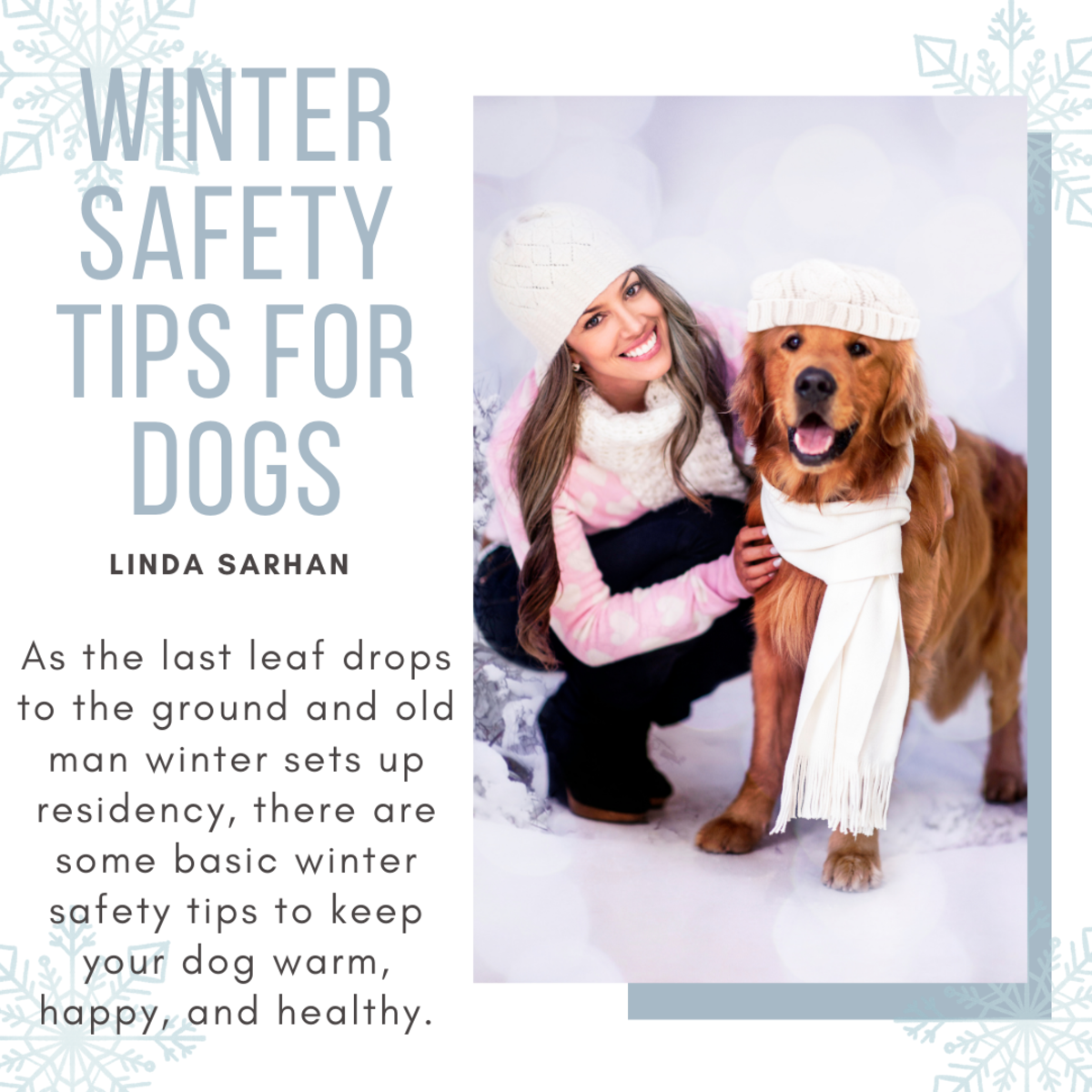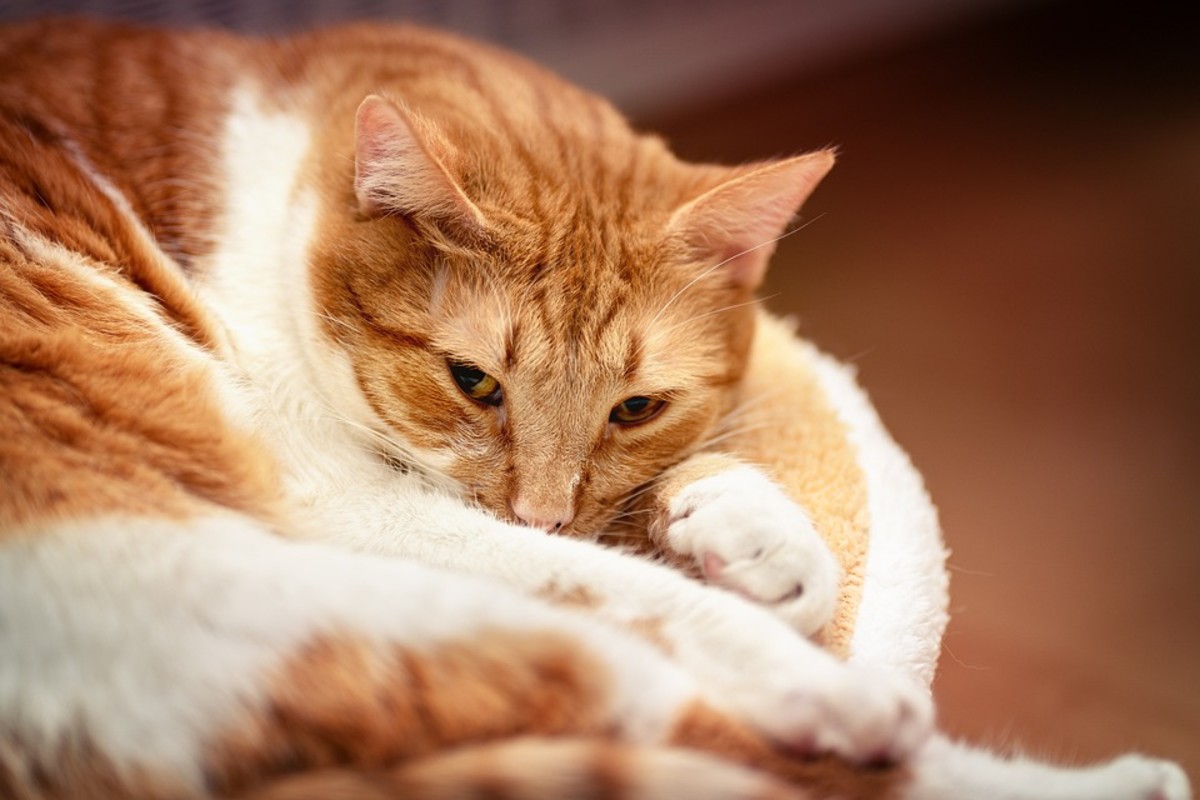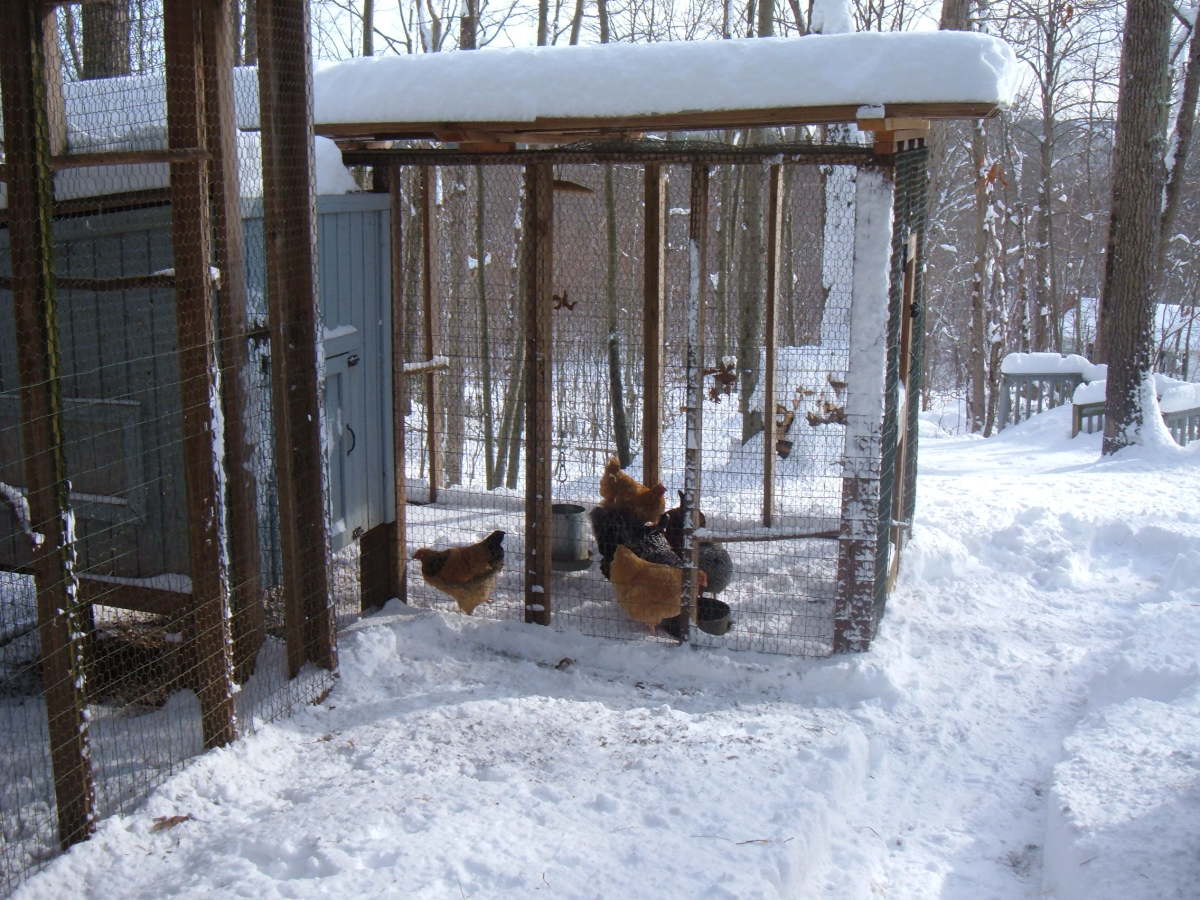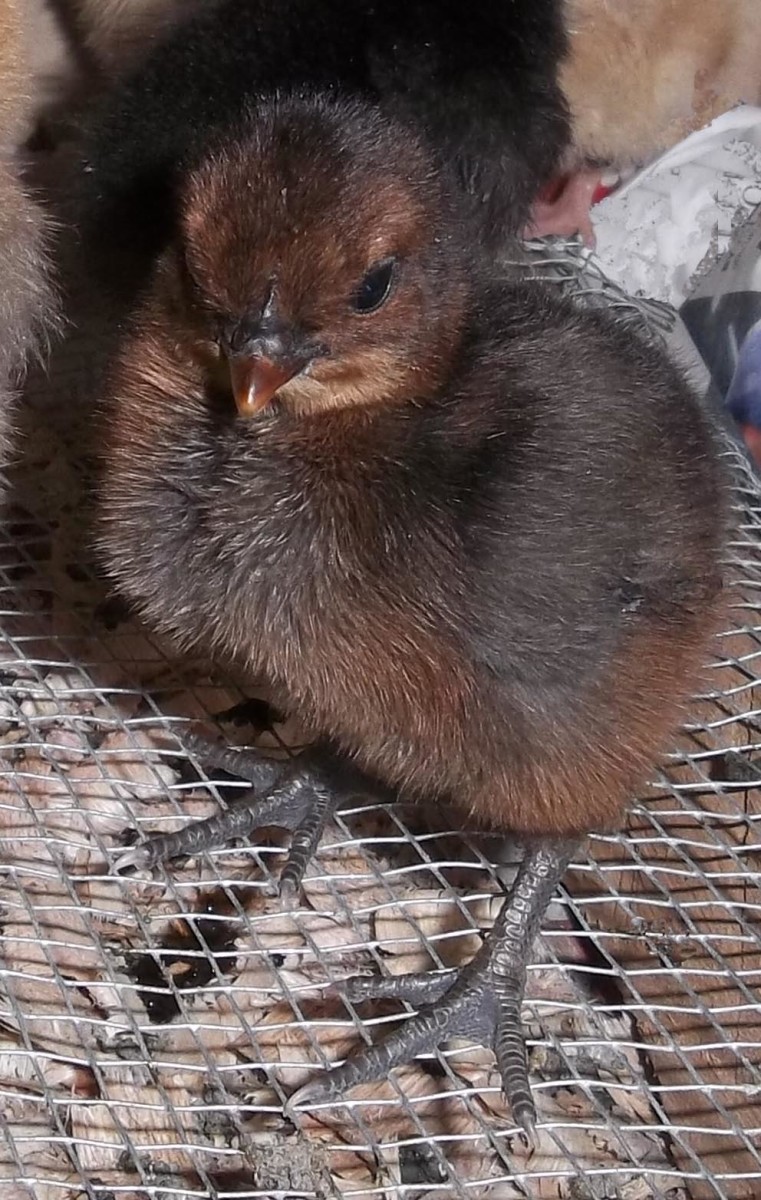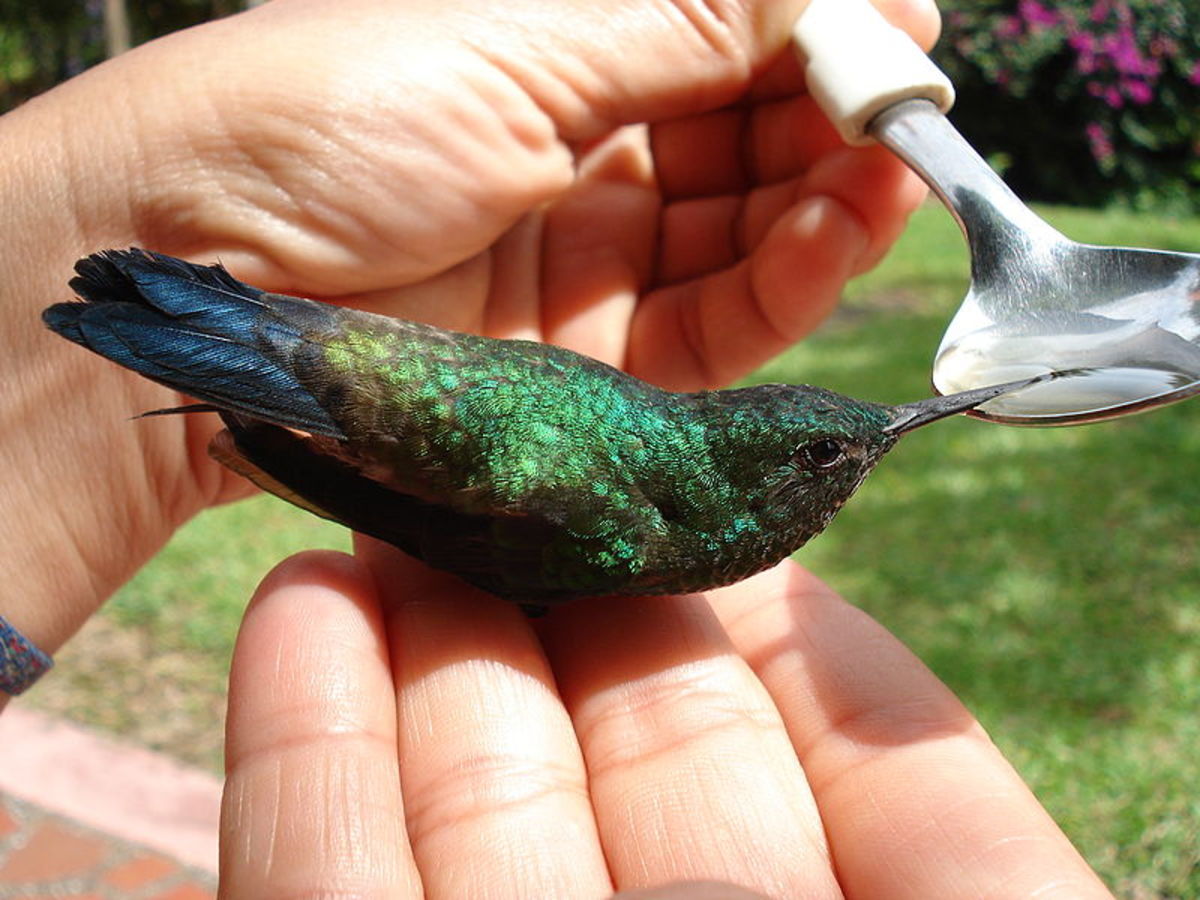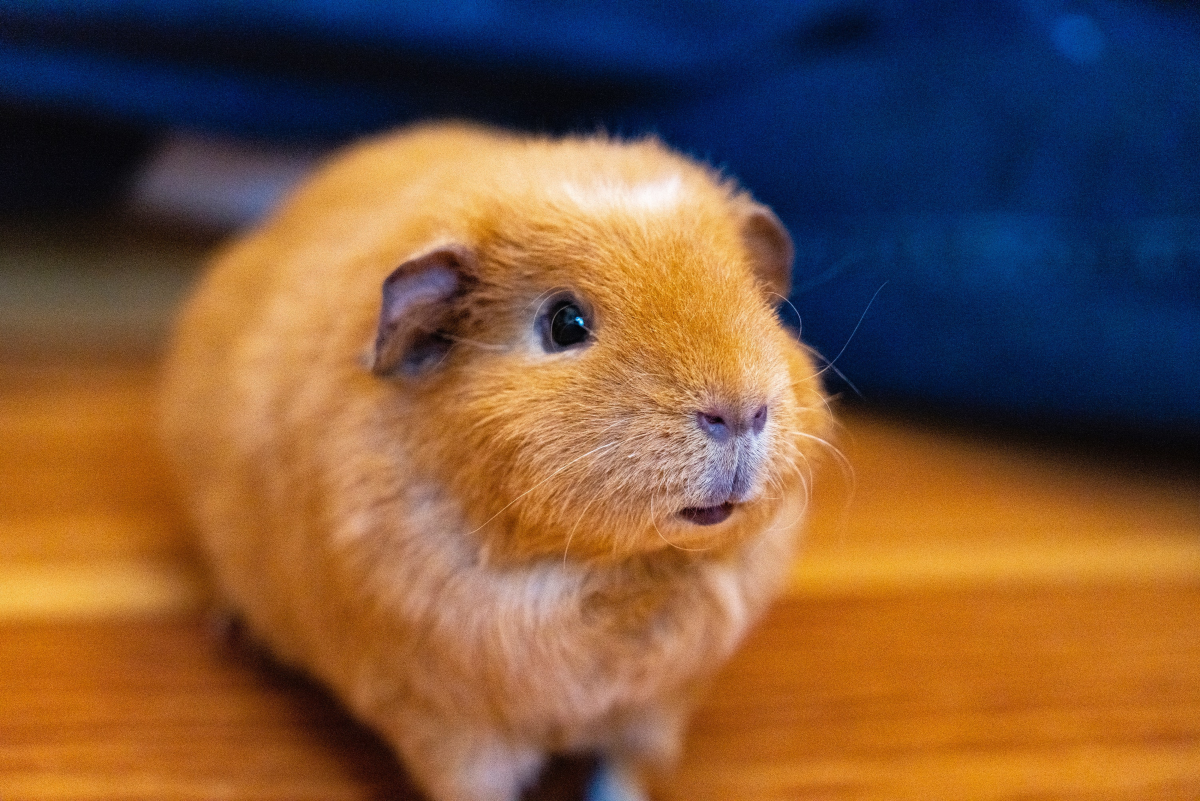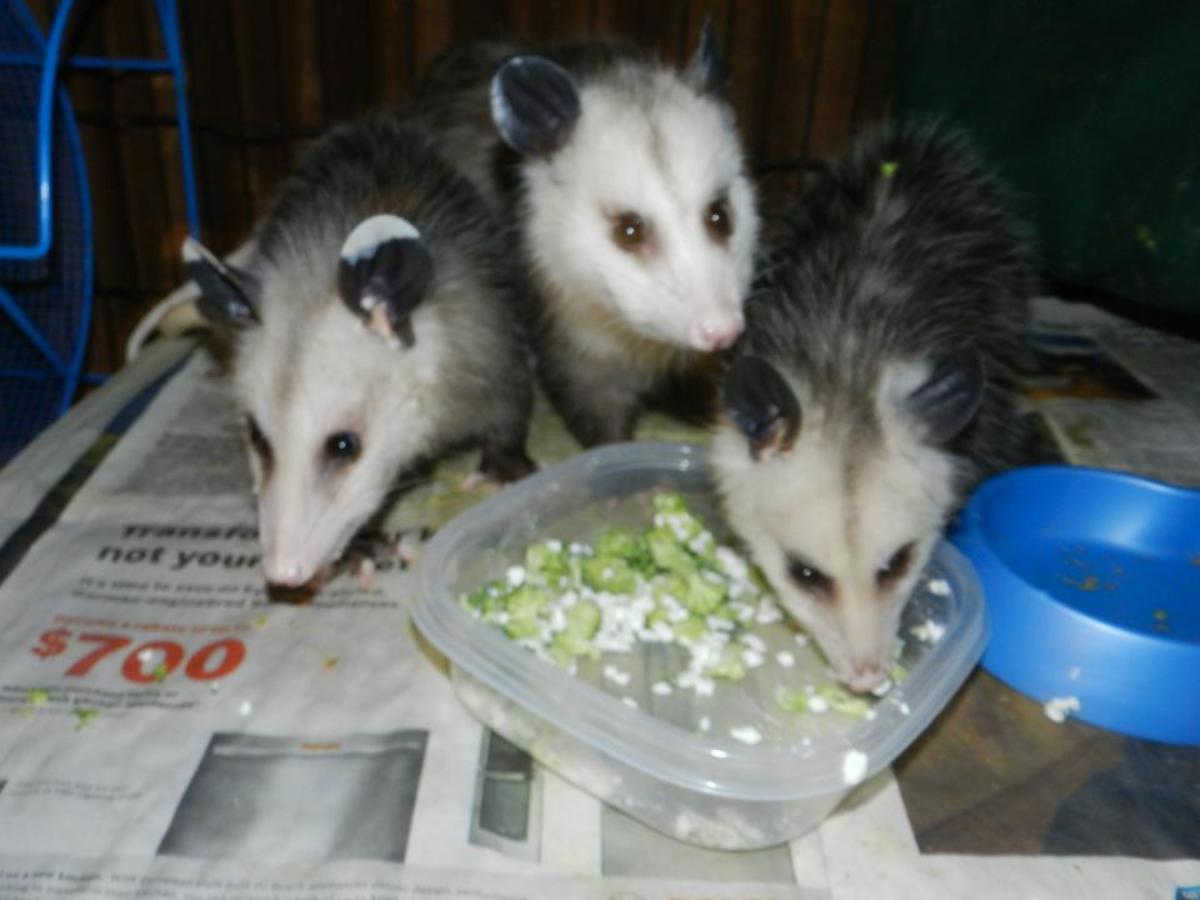Basic Backyard Chicken Care in US Zone 8b Winters
As hard as it is to believe for those living in northern zones of the United States, it does get cold in zone 8.[1] In fact, it gets so cold that city fountains have frozen in motion, ice has to be chipped out of livestock watering tubs and household pipes are apt to burst. The good news about freezing weather near the Gulf of Mexico is that it does not last long. An extended period of temperatures low enough to freeze water solid is not typical, making winter much easier on poultry and their keepers.
Personally, I lean more toward the 'old ways' of doing things, in that; I try not to make a big fuss over these things.[2] Please do not misunderstand, I adore my chickens and take quite good care of them. However, I do not run out to the hardware store and purchase heaters and blankets for them - although, you might find me singing them a lullaby some evenings. They are, after all, livestock. Certainly, I would do things differently if I were caring for chickens in a more severe climate. Thank goodness for mild winters.
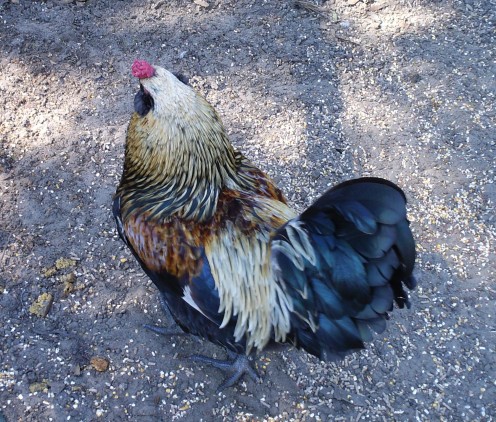
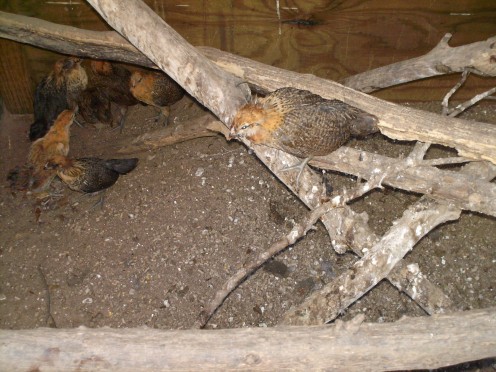
Drafts
The most important thing to keep in mind is to create draft free housing for your chickens. Blocking the north wind from entering where chickens roost will go a long way in keeping them happy and healthy through the winter. My chicken 'house' is no more than a three-sided shed made from plywood wrapped with tar paper. Plywood sheeting was also used for the roof then, topped with house-type roll roofing. Inside are roost poles made from fallen tree limbs or small trees. I change these poles out as needed.
The house is set at an angle facing southeast, so the north wind does not blow directly into where the chickens roost. In addition, the west side is one of the three walled sides, which prevents any wind driven rain from pelting the chickens inside. This is because our weather systems tend to come in from the west. Since our temperatures are not as severe as you will find in northern zones, a draft here will not be as bad as it would be for chickens in those areas. It is best to prevent extremely cold drafts from reaching your chickens, though, even in Zone 8.
If we are expecting a particularly cold winter, I will hang a tarp (tarpaulin) across the opening of my chicken house. This prevents the wind from constantly blowing in on the chickens. I remove it on warm, sunny days. I also place a scrap piece of plywood, approximately three feet tall, near the inside back of the house creating a small walled in area where the chickens can duck out of the wind in case it picks up unexpectedly while I am not around to cover the front with a tarp. Each year is different. It pays to be prepared for whatever the wind may blow in.
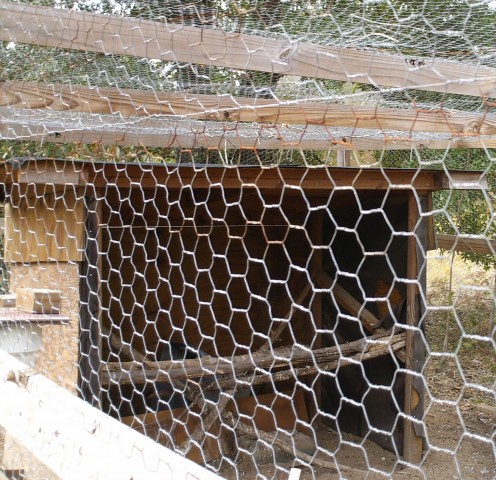
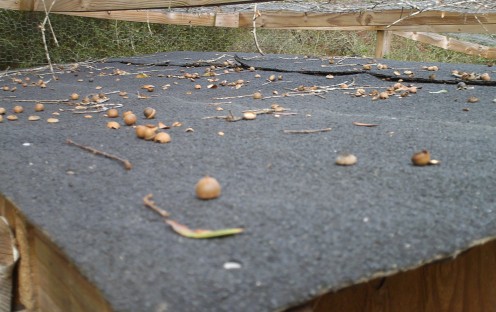
Moisture
Never use wet or damp bedding material for nest boxes or housing. Replace all bedding and nesting materials if they become the least bit damp, especially in the winter. I check bedding and nests regularly for wet areas. While a cold draft is bad, a wet cold will be far worse on your chickens.
Bedding
Chickens roost. They do not curl up with Granny's quilt on a feather bed. They do appreciate some bedding though. Hay and straw are good choices for the bottom of your chicken house any time of year but in the winter, it will serve to prevent drafts. It will also give the chickens something to scratch around in if they choose not to go outside during a cold snap. It is convenient to use the same hay or straw you would use in their nesting boxes.
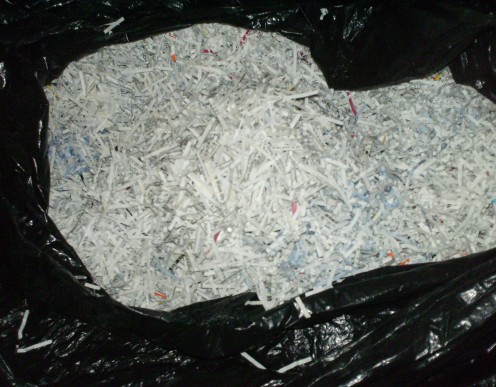
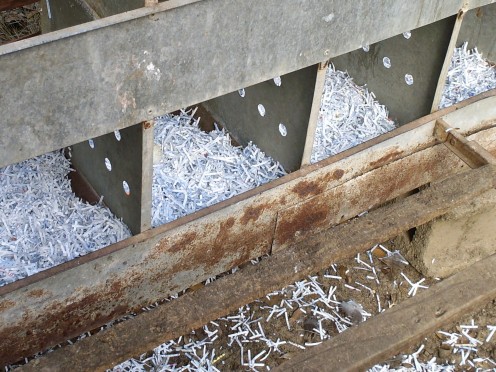
Feed & Water
Chickens should have access to fresh water in the winter - just as they do the rest of the year. After a cold night, I may have to crack an icy layer from the top of the water containers in my pen. Most often, the ice is thin enough that the chickens can do it themselves. There is always a chance that it has frozen too deep for them to crack it, though. I have more than one water container is my pen. One is a plastic garbage can lid turned upside down with a water hose hanging through the top of the pen directly above it. It is simple to leave the hose dripping if temperatures are expected to dip below freezing overnight. Of course, the typical chicken waterer is in there for them but they tend to pass that one by for the others. I also have an automatic watering system built from PVC pipe (polyvinyl chloride water pipe), a five-gallon bucket and poultry or chicken nipples. There are several sizes and types of these nipples. I use these.They are easy to find and inexpensive to purchase on eBay and Amazon.
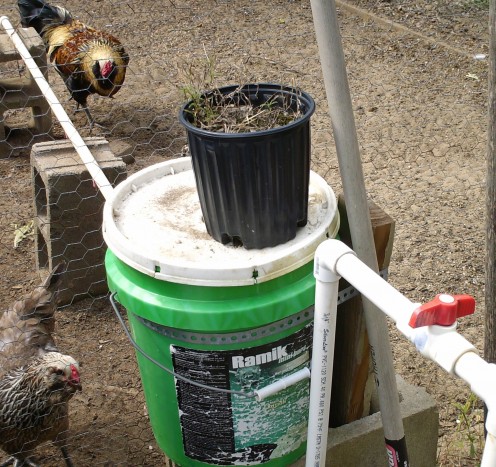
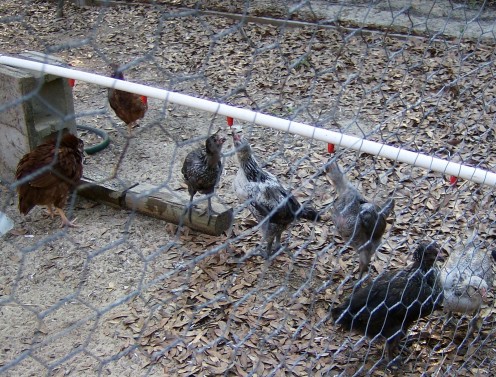
Chickens need extra calories to stay warm during cold months. It is a good idea to feed them a little extra scratch grain late in the afternoon. This will help to keep them warm through the night. Make sure their feed stays dry. You may also want to feed your chickens some sprouts. In the dead of winter, sprouts would be a huge treat. Lisa Jansen Mathews contributed an informative article to Backyard Chickens magazine where she mentions growing and feeding sprouts to your poultry.[3]
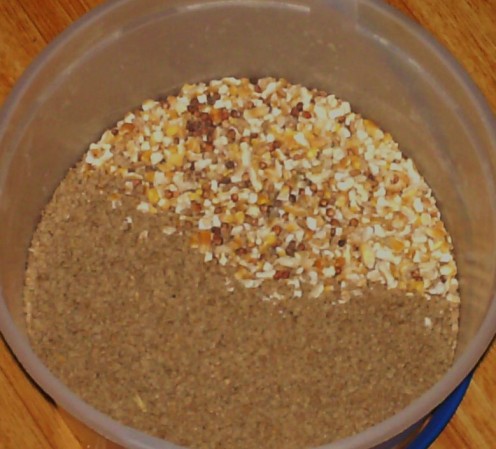
General Tips
- Continue regular health checks during winter months
- Keep chicken house clean and dry
- It is common for egg production to be down during cold weather
- Keep an eye out for frozen combs on roosters if temperature (or wind chill) dips below freezing for more than a few hours
- Check water containers every morning and periodically throughout the day if temperatures continue to hover near freezing
- Feed should contain extra protein and calories which helps in maintaining body heat overnight
- After seeing my son-in-law and daughter recycling their shredded paper in the chicken nests, I have found that it works for my nests as well. It works great & breaks down quickly for use in the compost pile or placed directly into the garden.
- As the title implies, these are basic care tips. Every chicken keeper will find, through trial and error what works best for themselves, as well as, their flock. If you are new to chicken keeping, please do plenty of research before settling on any one way of doing things. I choose to simplify as much as possible and have found these tips work best for me and mine.
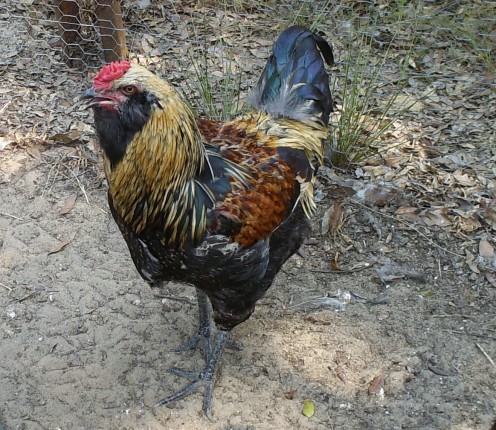
References:
[2] Common Sense (You won't find it in a book - We're born with it)

